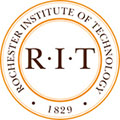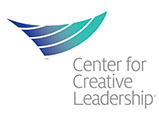Education

Denver, CO — We prepare global citizens to thrive and lead in
a changing world.
The College of Liberal Arts and Sciences offers an education tailored to the
demands of this new world. Within a community where diversity is valued, our
students share a passion for critical thinking, comprehensive learning and
creative problem-solving. Taught by engaged teachers who are also world-class
researchers and scholars, students get many opportunities for career experience
through our strong community partnerships. After graduation, they are sought by
top employers because students who learn with purpose will continue learning
for a lifetime.
The University of Colorado Denver Political Science Department prepares students
for informed and creative activism by providing them an opportunity to develop analytical
skills. The program incorporates historical, quantitative, experimental, ethnographic,
psychological, and creative methodologies while aiming to sensitize students to the
essential questions of politics and life. Many of our graduates are community organizers,
attorneys or public servants in local, state or federal government.
Click here to learn
more about the University of Colorado Denver

Rochester, NY — The photographic sciences major offers immersive
and flexible curriculum that prepares students for a wide variety of photographic and
imaging careers. The program provides strong foundations in applied technical photography,
explores modern imaging technologies and problem-solving, and focuses on preparing students
for a wide range of employment opportunities in science or industry. Cooperative education
is required and ables students to gain valuable career experience in their field of applied
photographic practice. During the first two years, students are immersed in technical
applications of scientific photography courses while also pursuing courses in laboratory
sciences, such as physics or biology, all selected to complement career goals. Students
are encouraged to integrate complementary studies in subjects such as imaging science,
information technology, general education, or developmental biology to best prepare for
exciting and new opportunities. Many recent graduates have pursued advanced degrees.
Photographic sciences graduates have a 95 percent outcome rate (which includes full-time
employment or the pursuit fo graduate school) following graduation.
Click here to learn more about RIT

Chicago, IL — The Kellogg Executive Development Program focuses on results:
helping organizations succeed by equipping and empowering top-performing managers to realize
their potential for assuming general management roles.
Dynamic, rigorous curriculum for changing times
This intensive program focuses on the environment in which business operates, the key
functional areas of management, the development and implementation of corporate and
business unit strategy and the promotion of organizational learning. With a finger on
the pulse of business, Kellogg ensures the curriculum keeps pace with the ever-evolving
challenges and complexity of executive leadership.
A collaborative, engaging learning environment
Our cross-disciplinary faculty creates an interactive learning experience unavailable
anywhere else. The emphasis on faculty interaction and collaboration with an international
group of peers intensifies the learning experience, promotes the informal exchange of ideas,
expands your perspective and fosters rewarding relationships that can last a lifetime.
Click here to learn more about the Executiv Development Program



